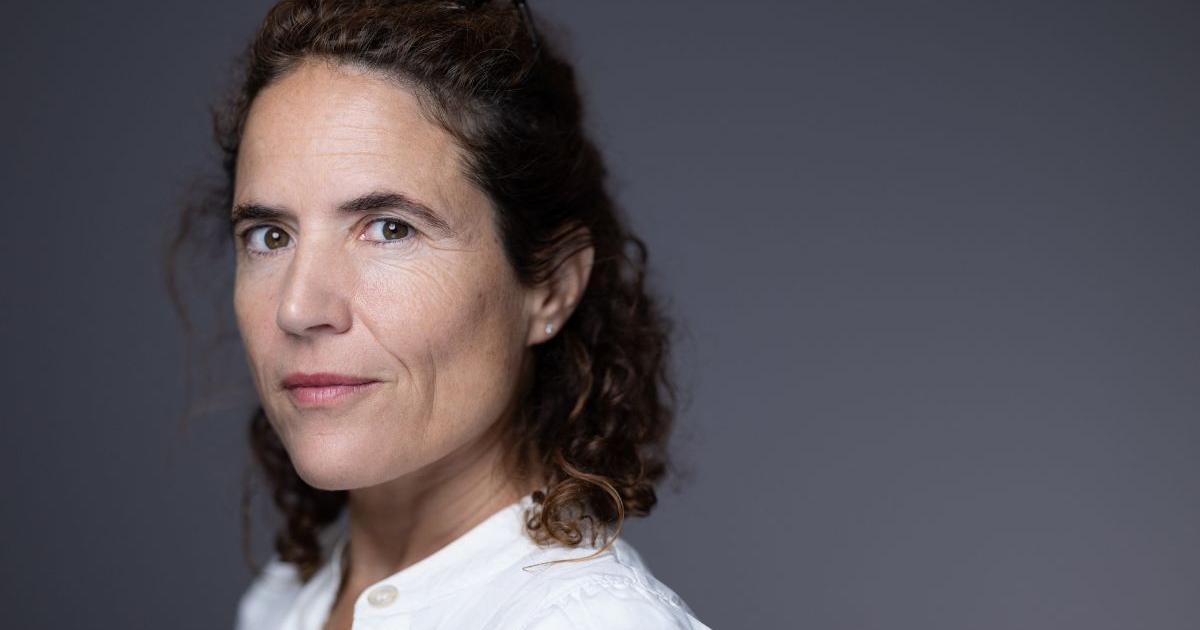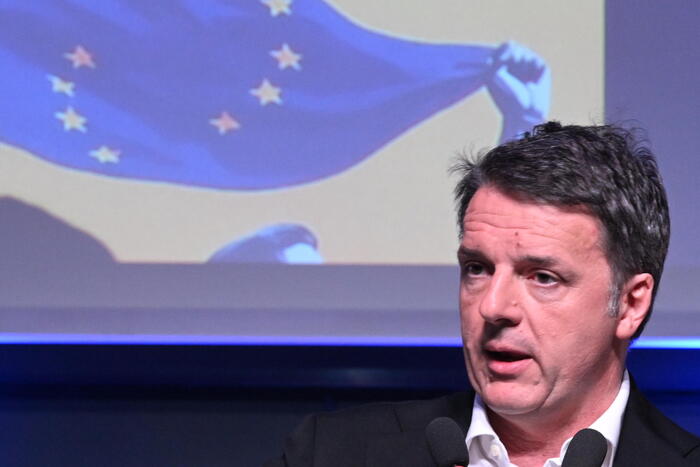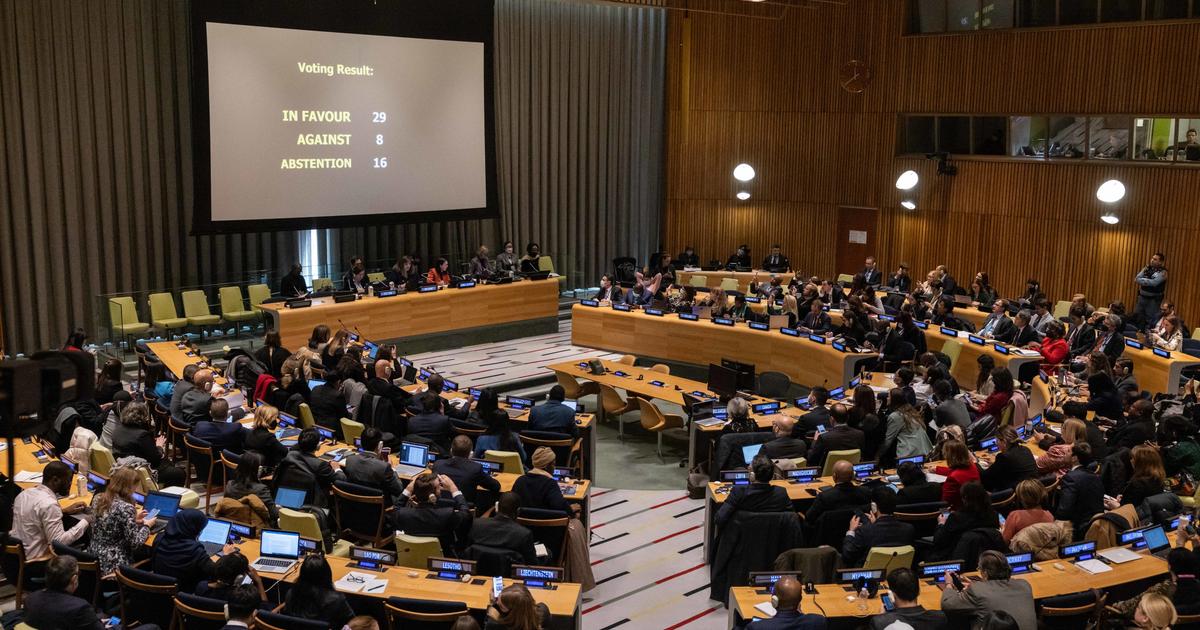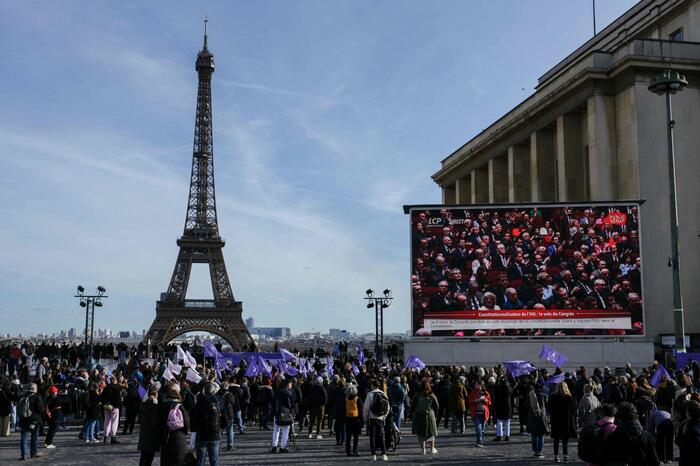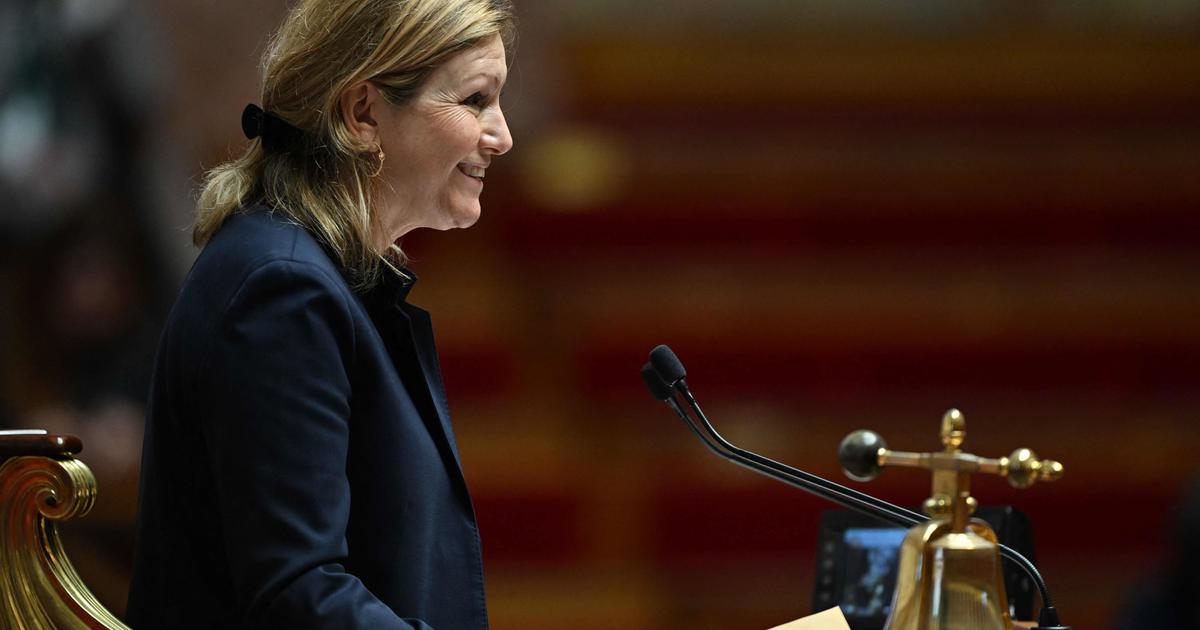Icon: enlarge
The podcaster Nandar at the »Vagina Monologues«, a feminist play in 2018
Photo: Feminist Talks with Nandar
The day before the interview, Nandar, activist and podcaster from Myanmar, sends this WhatsApp message: »I just wanted to let you know if I shouldn't be online and available tomorrow morning, it's the military.
Did you hear it on the news? "
It's Monday, February 1st, very early in the morning German time, at Nandar's already noon.
It is the day in Myanmar when the military takes over the lead, declares a state of emergency, removes power from the Prime Minister Aung San Suu Kyi and arrests them with other politicians.
A coup.
Icon: enlarge
Aung San Suu Kyi 2019 in Tokyo, Japan
Photo: PIERRE EMMANUEL DELETREE / Getty Images
There had been speculations about such a step days before.
There was tension mainly because of alleged electoral fraud in the parliamentary elections in November 2020, in which Suu Kyi had a second term and her party NLD, according to official information, won an absolute majority.
After decades of military dictatorship, Suu Kyi came to power in 2015, in the first free elections since 1962.
On February 1st, soldiers patrol the streets of the capital Naypyidaw and the largest city, Yangon.
The activist Nandar, who only calls herself by her first name, experienced the coup in the morning at home, in her apartment in Yangon.
She can tell that something is wrong when she no longer has internet reception.
Your mobile phone cannot dial into the social networks that it would otherwise open when you get up.
It seems strange to her.
SPIEGEL
: Nandar, what did you think when you heard about the coup?
Nandar
: When I got back on the internet, I sat for hours on a gym bag, my laptop on my knees, I googled, googled, googled.
Got me all the bad news.
I was sad, shocked, and still am.
But the truth is: My friends and I, we grew up under a dictatorship.
We knew deep down that this coup was going to happen.
We always knew how powerful the military is.
It could have happened five years ago, two years ago, or now.
SPIEGEL
: There are videos of people standing on their balconies and protesting against the military.
Nandar
: Yes, I do that every day too.
We stand there, hitting pots and pans, in the end we applaud each other to persevere.
But we are now also taking to the streets.
People shout: "Release Aung San Suu Kyi!" We want to have a democratic country.
Today we went to a bicycle protest.
Everything was peaceful here, but there were violent clashes with security forces elsewhere.
The military has banned the protests, there are curfews.
SPIEGEL
: Is that the beginning or is it the end of the resistance?
Nandar
:
Thinking
about something like that takes
away
my strength.
In my podcasts and texts I call on people, especially women in Myanmar, to stand up more for their rights, to speak out loudly what they want.
That was a long time
not as important as it is now.
But I also look at the coup from a feminist perspective: the military always presents itself as the “father of this country”. I think the fact that a woman of all people was president was a huge disruption to the military.
And basically, Aung San Suu Kyi feels like so many women in Myanmar: She was silenced.
A male president would certainly have been ousted, but I think it would have been somehow more dignified.
Perhaps his voice would not have been taken away.
"I know women who have given birth to eight children but know nothing about their bodies."
SPIEGEL
: We originally met to talk about your work with and for women in Myanmar.
How is their situation?
Nandar
: I grew up in the small village of Mansam in Shan in the northeast of the country.
Traditions are very powerful in the country, and I felt that too.
Women have far fewer rights there, they are told that the most important thing is to be a virgin.
When I was 14, I went abroad and went to school there.
It was only then that I realized that I have the same rights as men.
Today I think girls don't have to leave Myanmar to understand that.
You know that. You have internet.
But in everyday life they still constantly reach their limits.
SPIEGEL
: To what extent?
Nandar
: Let's look at the families.
Sentences like "but you are a girl, that's not proper" are unfortunately very often heard by young women.
Girls are not supposed to have big dreams.
They shouldn't long for a good school or university, for a job that appeals to them.
Girls - and boys - are trained in these barriers in their heads, they grow up with them.
I know many women who live in abusive relationships who experience violence on a daily basis.
But they don't part.
This is also due to the corona time.
Many women have no independent income and lost their jobs during the crisis.
How am I supposed to survive alone? They ask.
Financial security at the price of maximum physical insecurity.
Icon: enlarge
After the military coup, women and men are calling in
Yangon, Myanmar, the release of President Aung San Suu Kyi
Photo: Getty Images
SPIEGEL
: What other effects will the pandemic have?
Nandar
: Women and girls are even more at home than usual, they are even more monitored.
They are even more used and exploited for care work.
I have contact with female and male students whose schools and universities are closed due to Corona.
You are now sitting at home with parents who do not accept their children's right to privacy.
They disturb, break into the rooms, patronize the girls.
Such things.
Sons are left alone.
The good news is that there are more and more public contact points in Myanmar's cities where women and men can get advice, find help and talk about their problems.
SPIEGEL
: In your podcasts you answer questions that many girls in Myanmar don't dare to ask.
Nandar
: I noticed that friends, or people I was in a relationship with, knew very little about sexuality.
What happens during sex.
That sex has to be consensual.
Such basic things.
Our education system excludes sex education, we don't learn anything about menstruation, contraception or communicable diseases at school.
Fathers and mothers don't answer questions.
I know women who have given birth to eight children but don't know anything about their bodies.
As if he wasn't one of them.
I say to these women: get to know your body.
Get him back.
He's only yours.
Icon: enlarge
Nandar: "Get your body back!"
Photo: Feminist Talks with Nandar
SPIEGEL
: Are there also men among your audience?
Nandar
: I mainly
address
women.
I want to make it clear to you why it is so important to know: about your breasts, the vagina, the uterus, all parts of your body that are essential for health and sex.
But I hope men will listen too.
Because even boys have no one to seriously talk to about sexuality.
The result: men think they can do whatever they want with the female body.
Women think whatever men do to them is okay.
This is how we are brought up in this patriarchal society.
I think the more you know about your counterpart's body, the more respect you have for him.
SPIEGEL
: How are the reactions to your work?
Nandar
: I get a lot of
hateful
comments in my inbox, once a photo of me was uploaded to a porn website.
But to be honest, and this applies to women's rights as well as to the current political crisis in Myanmar: we can only change things if we normal people are loud.
Then a dictatorship can become a democracy.
And a patriarchal to an equal system.
Icon: The mirror
This contribution is part of the Global Society project
What is the Global Society project? Up arrow Down arrow
Under the title Global Society, reporters from
Asia, Africa, Latin America and Europe
report on injustices in a globalized world, socio-political challenges and sustainable development.
The reports, analyzes, photo series, videos and podcasts appear in the international section of SPIEGEL.
The project is long-term and will be supported by the Bill & Melinda Gates Foundation (BMGF) for three years.
A detailed FAQ with questions and answers about the project can be found here.
What does the funding look like in concrete terms? Up arrow Down arrow
The Bill & Melinda Gates Foundation (BMGF) is supporting the project for three years with a total of around 2.3 million euros.
Is the journalistic content independent of the foundation? Up arrow Down arrow
Yes.
The editorial content is created without any influence from the Gates Foundation.
Do other media have similar projects? Up arrow Down arrow
Yes.
Major European media outlets such as "The Guardian" and "El País" have set up similar sections on their news sites with "Global Development" and "Planeta Futuro" with the support of the Gates Foundation.
Have there already been similar projects at SPIEGEL? Up arrow Down arrow
In recent years, SPIEGEL has already implemented two projects with the European Journalism Center (EJC) and the support of the Bill & Melinda Gates Foundation: The "Expedition The Day After Tomorrow" on global sustainability goals and the journalistic refugee project "The New Arrivals", as part of this several award-winning multimedia reports on the topics of migration and flight have emerged.
Where can I find all publications on Global Society? Up arrow Down arrow
The pieces can be found at SPIEGEL on the topic Global Society.




